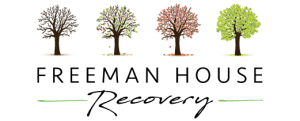Addiction is an incredibly complex and difficult thing to cope with. It can have a devastating effect on the individual suffering from it, as well as their family, friends and community. Unfortunately, many people who are struggling with addiction don’t know where to turn for help. That’s why there are now more resources available than ever before to support those who are fighting addiction and working towards recovery.
In this article, we will be exploring the different resources that are available for people experiencing addiction. We will look at how these resources can help them in their journey of recovery and how they can access them. We will also discuss why seeking help is so important if someone is struggling with addiction.
By reading this article, you will gain an understanding of the types of resources that are out there for people experiencing addiction as well as how they can access them. By doing so, we could potentially help someone struggling with addiction get the support they need to begin their road to recovery; a journey that requires courage and strength but can ultimately lead to a happier and healthier life.
Importance Of Resources For People Experiencing Addiction
At some point in their life, many people will experience addiction – whether it’s their own, or that of a loved one. The road to recovery and sobriety is often a long one, and having access to the right resources can make all the difference. It’s important to understand why resources are so beneficial for those living with addiction.
Having access to reliable information is essential for anyone living with an addiction as it helps them to better understand their condition and provides them with guidance on how best to manage it. Being able to talk openly and honestly about difficult topics can be incredibly powerful – both for the individual experiencing addiction, but also for their family members who may be struggling alongside them. Resources such as support groups offer a safe and understanding environment where the individual can talk freely about their issues without fear of judgment or criticism from those around them.
It’s also vital that those living with an addiction have access to professional help if needed. This could include therapists, psychiatrists or even just someone who can provide advice on how best to cope with feelings of stress or anxiety that may arise as a result of substance abuse. Having this type of assistance available can help individuals take back control of their lives and get back on track towards long-term recovery and sobriety.
Accessing the right resources can make all the difference when it comes to overcoming an addiction. Being able to find reliable information, support groups and professional help can empower individuals by giving them a sense of control over their lives while providing the necessary tools they need in order to achieve long-term recovery goals.
Professional Support Such As Counseling
When it comes to addiction, professional support is essential. Counseling can be an invaluable resource for those who are experiencing addiction. It provides a safe space for people to explore their feelings and identify the underlying causes of their addictive behavior. Through counseling, individuals can create goals and strategies to help them manage their addiction in healthier ways.
Counselors are trained to listen without judgment and provide emotional support to those tackling addiction. They can also offer valuable insights into how a person’s environment, upbringing, or other external factors may have contributed to their current situation. Knowing the root cause of an addiction can be empowering and give people the motivation they need to make lasting changes.
No two cases of addiction are alike, so counselors tailor their approach based on each individual’s needs. This could include cognitive behavioral therapy (CBT), which helps individuals develop coping skills for stressful situations; motivational interviewing (MI), which encourages self-reflection; or family therapy, which focuses on relationships with loved ones and how they might be affecting the person’s recovery process. With professional guidance and support, those struggling with addiction can find the strength within themselves to make positive choices that will lead them towards a healthier future.
Support Groups
Support groups are an invaluable resource for people experiencing addiction. They provide a safe environment to share stories, find mutual understanding, and support each other. What’s more, they can be accessed free of charge and in many cases run by former addicts with personal experience of addiction recovery.
These groups often come in the form of peer-led meetings, where members share their experiences and help each other work through their issues and engage in self-care practices. It is also common to have a trained facilitator on hand to help guide the conversation and ensure that everyone’s needs are met. This helps to create a safe space for members to express themselves without judgment or criticism.
In addition to providing emotional support, these groups also offer practical advice on managing addiction and accessing resources such as medical care or social services. Members can also benefit from developing new coping skills and tools to stay motivated and make positive changes in their lives over time.
Self-Help Resources
Self-help resources can be a powerful tool in the process of overcoming addiction. They offer a way for people to take control of their recovery journey, while also providing access to valuable information and guidance. Self-help resources provide a wealth of materials focused on addiction treatment and management, such as books, articles, videos, and other types of media. These materials can help people understand more about their condition and develop strategies for dealing with it.
Self-help resources also provide an opportunity for people to find support from others who have similar experiences. This can include online forums and social media groups that offer peer support and advice. Additionally, many self-help websites feature interactive tools such as quizzes, worksheets, or tracking logs that help people measure their progress towards sobriety.
By using self-help resources, individuals can gain the knowledge they need to make informed decisions about their recovery journey. It is important to remember that these materials are not intended to replace professional care but rather are meant to supplement it by providing additional support and guidance along the way.
Finding The Right Resources
When it comes to addiction, finding the right resources can be a daunting task. There are many options available and it’s important to have access to quality resources. It’s essential to look for ones that suit your specific needs and provide helpful guidance.
The first step is to do some research online. There are many websites dedicated to helping those in recovery, providing useful information and advice on topics such as treatment options and support networks. You could also contact organizations or charities that specialize in addiction recovery – they can provide further guidance on where to look for help.
It may be beneficial to talk about your situation with someone you trust, such as a family member or a friend who has experienced similar issues in the past. They may be able to suggest programs or services that will meet your needs. Additionally, it can be helpful to reach out for professional support from a therapist, doctor or qualified counselor – they can help you identify the best approach for dealing with addiction and provide valuable insight into how you can find the resources you need.
No matter what path you choose, seeking out appropriate resources is an important part of managing addiction and taking control of your life. With the right support, you’ll have access to the tools needed to start making positive changes in your life.
Conclusion
In conclusion, resources for people experiencing addiction are essential for those who want to take back control of their lives. Professional support such as counseling and support groups are beneficial for those who need help recognizing and understanding the underlying issues behind their addiction. Self-help resources can also provide guidance on how to manage cravings, build healthy habits and develop effective coping skills. Ultimately, it is important to find the right resources that suit your individual needs in order to make a successful recovery from addiction. It is also important to remember that you don’t have to go through this journey alone – there are plenty of people out there who are willing to offer support and guidance through this difficult time. With the right tools and resources, you can achieve lasting recovery and lead a life free from addiction.










